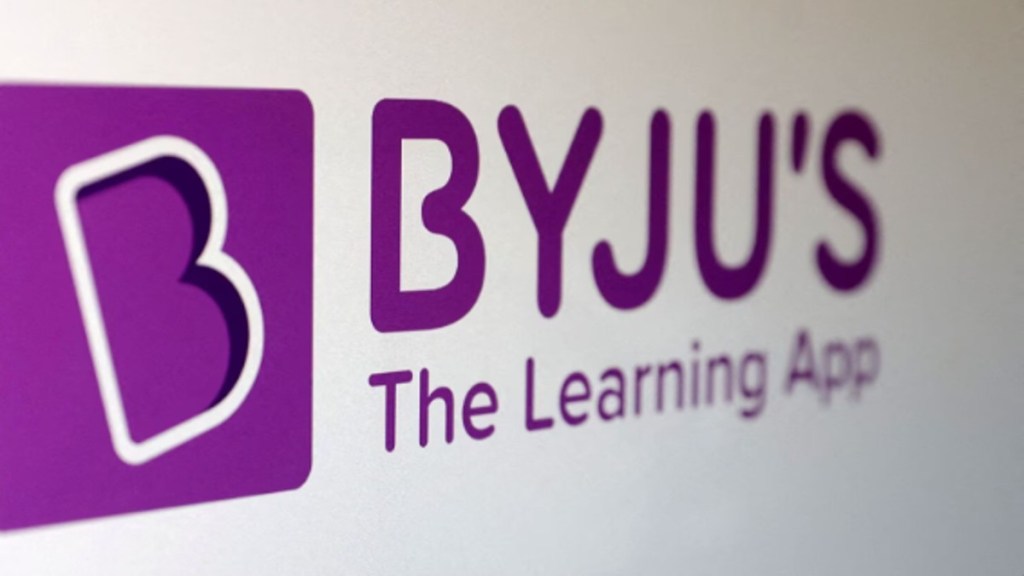Byju’s new CEO Arjun Mohan, in his book Educating A Billion published by Penguin Random House, is highly optimistic of the ed-tech sector in India. He drips the same sentiment in a conversation with FE when he emphasises online learning is here to stay, and how his first task as CEO will be to change the narrative at Byju’s to drive customer outcomes along with scale.
“It will take me some time to bring the organisation into that focus in the current noise, but the direction is clearly set up. And I am confident that the same thing can be done profitably. Fundraising and valuation are no more a priority; whatever happened has happened. Now the focus is on ensuring that the customer gets what she is looking for through our large variety of products.” Determined to walk his talk, he says, “I don’t believe in just professing. I practice what I profess”, even if it means bringing about a “cultural change” at Byju’s.
Commenting on the current crisis in the ed-tech sector, he said, “The biggest thing is that we are accepting a problem. The focus was on growth at any cost, and how do I get the next customer, and not on how I service the existing customer. In the current founders, whether at Byju’s or other ed-techs, I see that acceptance, and that’s when the solutions start.”
One such solution, he said, is that Byju’s has stopped partnering for EMIs to customers. EMIs not only caused backlash from customers, they also caused a delay in declaring of company results previously due to incorrect factoring in of EMIs in declaring profitability.
Mentioning in his book as well that the current reversal in the sector is temporary, with no demand-side problems, and companies’ internal issues causing the ed-tech crisis, he told FE, “How many ed-techs in the past or even today measure their success as outcomes provided to students? Unless we start doing this and stop bothering about revenue and growth, the problems will not change. So, are you ready to change and move in that direction is the whole question.”
For him, this direction includes offering products at different price points to satisfy a wider range of customers, incorporating more AI tools, and introducing more Indian languages at Byju’s.
So will he start on a clean slate? “I don’t think I, or any of us who are in the startup world, have the luxury to do it. We will have to work out things, fix some things. There is no way we can start on a clean slate. What do we have now, and how we can make the best of it to drive the right customer experience and outcome will be my focus as CEO.”
‘Aakash issues will tide off’
Mohan writes in his book that the acquisition of Aakash was a masterstroke by Byju’s. He told us he still stands by that opinion despite the ongoing tussle with the coaching classes company. “The problems can be traced to internal company issues which we brought on ourselves because of exuberance and too much capital. But now I think things are very different. Now there is more maturity, more clarity, and people are moving in the right direction.”
He pointed out that when Byju’s acquired the company, it had revenues of around `900 crore, which today are about `2,500 crore. However, he declined to comment if the IPO of Aakash will go ahead, saying it was too early in his new role to speak on such issues.
‘Decreased valuations a cyclical change’
When asked about the cut in valuation of Byju’s by its investors, Mohan said, “I don’t think it is an ed-tech-only phenomenon. This is a market phenomenon. This has happened across the internet commerce ecosystem. Look at Paytm. Over-valuation of companies during Covid was an outcome of the environment at that point. The closest example from history I can give is of the dot com bubble and burst. Post that, companies with the right fundamentals survived. So I see this as a cyclical change.”
‘Hybrid is the future’
“If there is something that Covid and immediate post-Covid world taught us is that both online and offline have their own merits and demerits. If online offers flexibility, accessibility, quality, offline brings in the social and community aspect. Hence, if you want to build an organisation that can continue to do business all year round, you need to have both online and offline. This will bring about consolidation in the sector as well,” he said.

